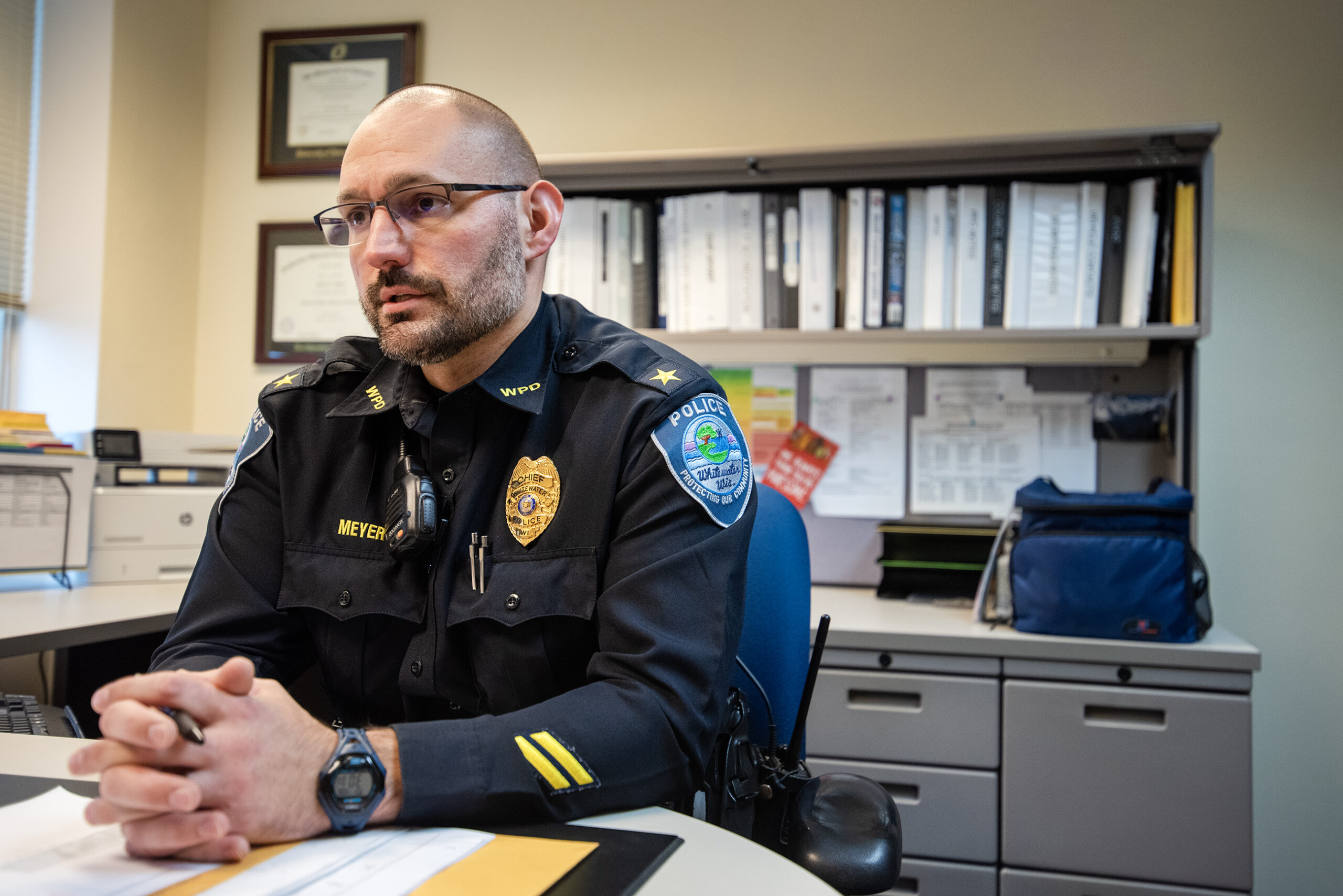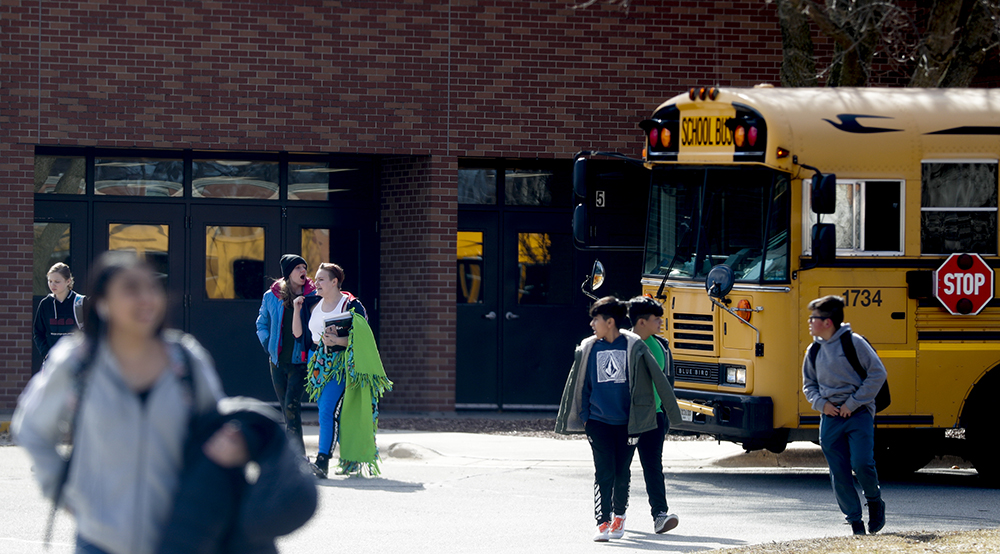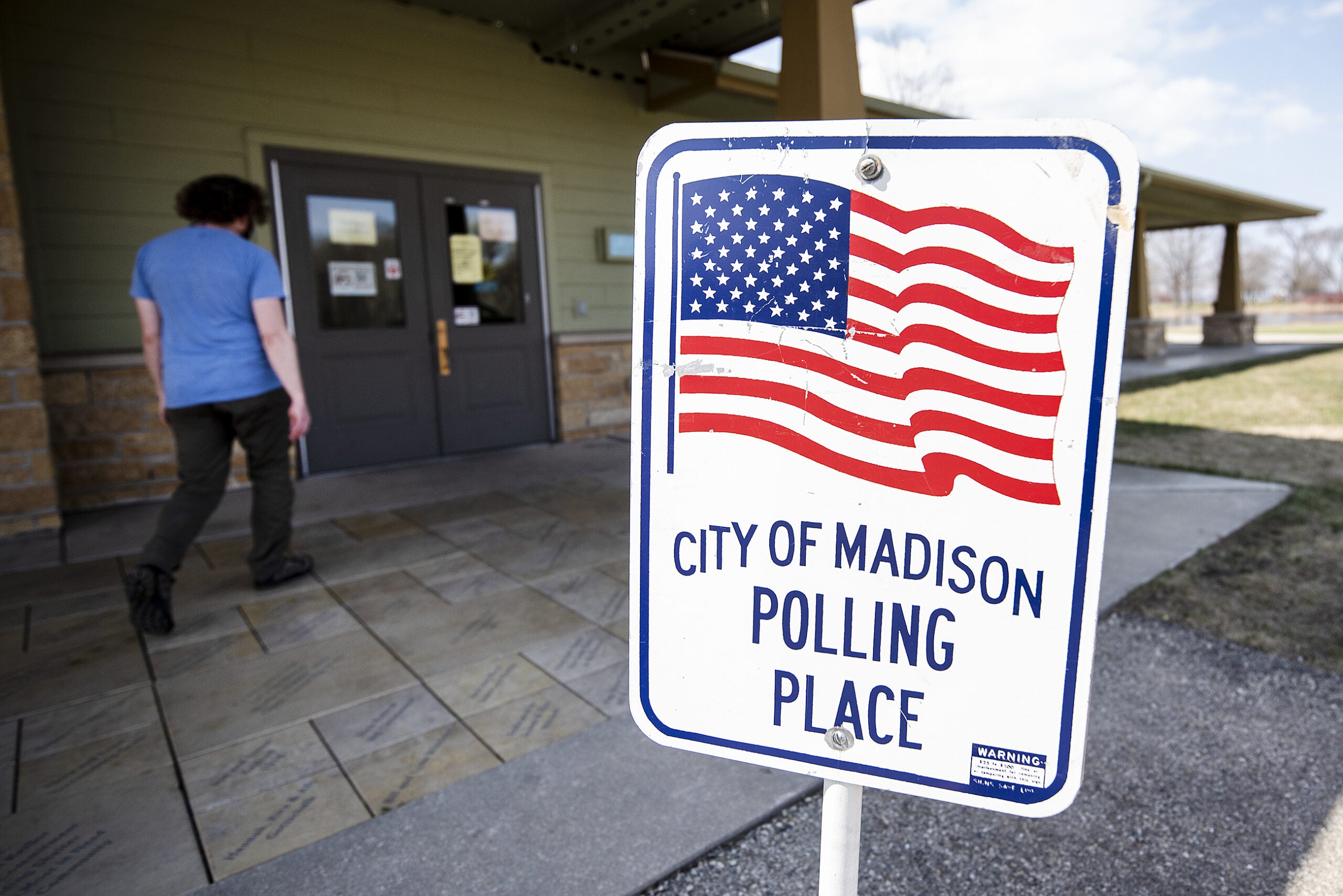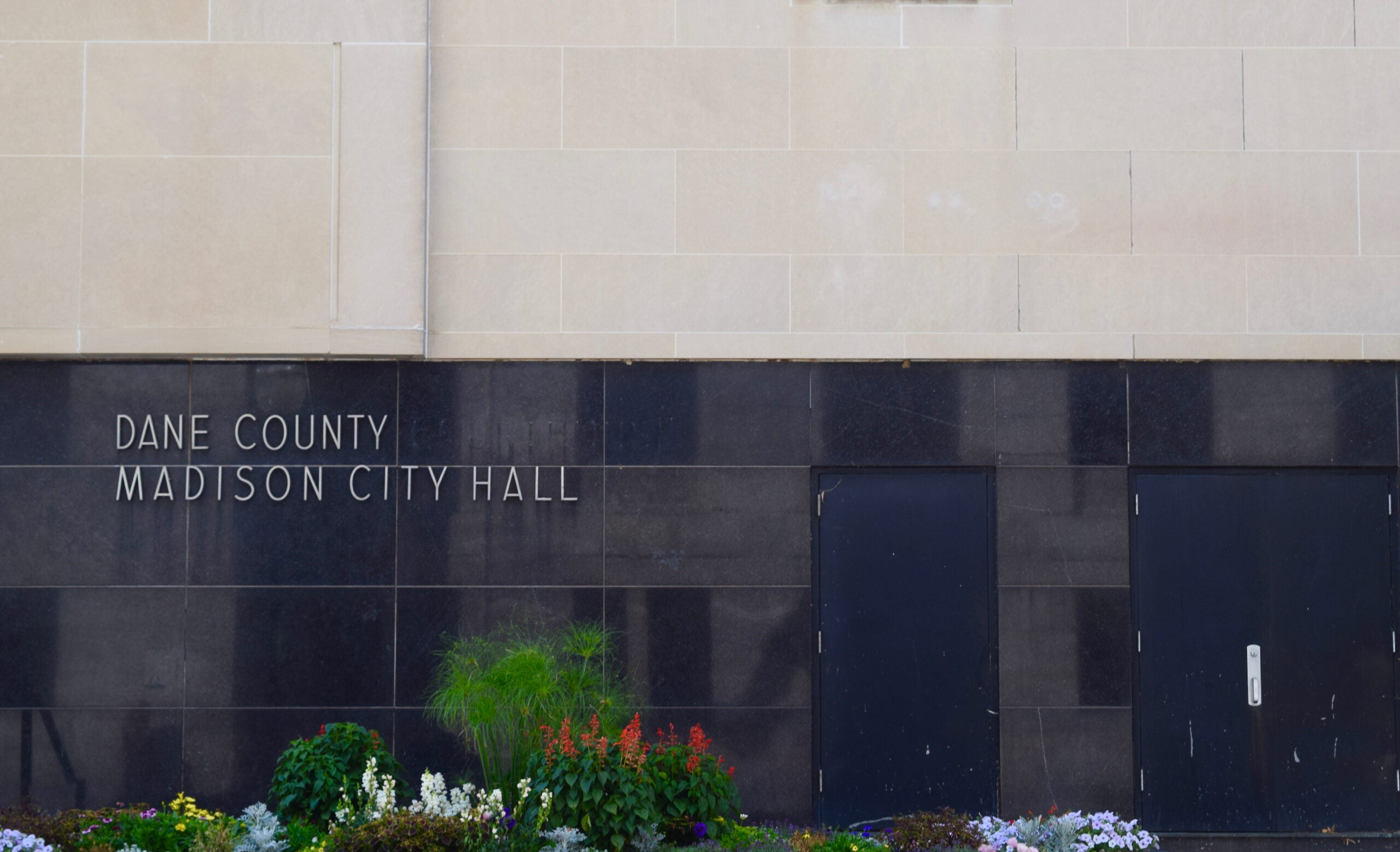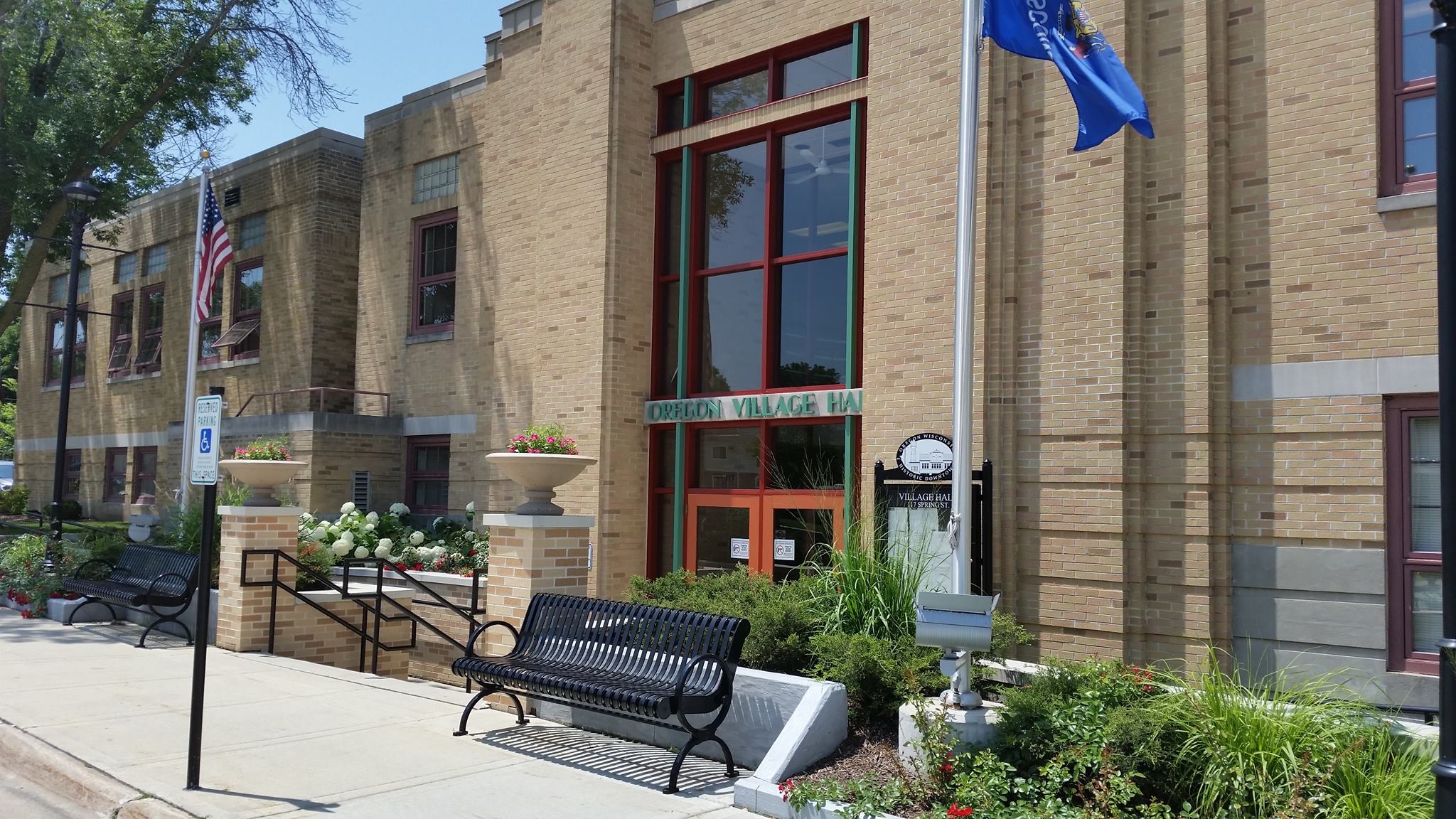Municipalities across Wisconsin are still asking residents to approve referendums to fund public safety even after a sweeping measure to send more money to local governments was passed in 2023.
Data from Wisconsin Policy Forum found 44 municipalities and counties held referendums to increase their property tax levy in 2022. That number fell to 31 in 2024, but Ari Brown, a researcher with Wisconsin Policy Forum, said more communities have been turning to referendums since 2018.
Counties and municipalities rely heavily on the property tax to provide services for residents. But state law limits how much local governments can raise their property tax levies without voter approval.
Stay informed on the latest news
Sign up for WPR’s email newsletter.
Brown said raising the property tax levy is limited by the rate of net new construction in a community.
“One of the things that we’ve seen is that net new construction has tended to lag behind inflation in most years,” Brown said. “So in most years, most, or at least a very significant number of municipalities, counties … are not going to be able to raise property taxes by the rate of inflation.”
Brown said that’s been an issue for local governments that are looking to retain staff through competitive salaries and benefits.
Meanwhile, many local governments are still facing budget shortfalls even after the passage of the shared revenue law.
“The state injected a tremendous shock of resources through shared revenue,” said Jerry Deschane, the executive director of the League of Wisconsin Municipalities. “Shared revenue is still less than a majority of how local governments are funded.”
Brown said the law that reshaped how Wisconsin sends money back to local governments, known as Act 12, generally helped smaller communities.
“Act 12 helped everyone, but it helped some more than others,” he said. “And we suspect the folks who it helps the least are probably the ones where there are going to continue to be referenda.”
At least 3 referendums on the ballot this April
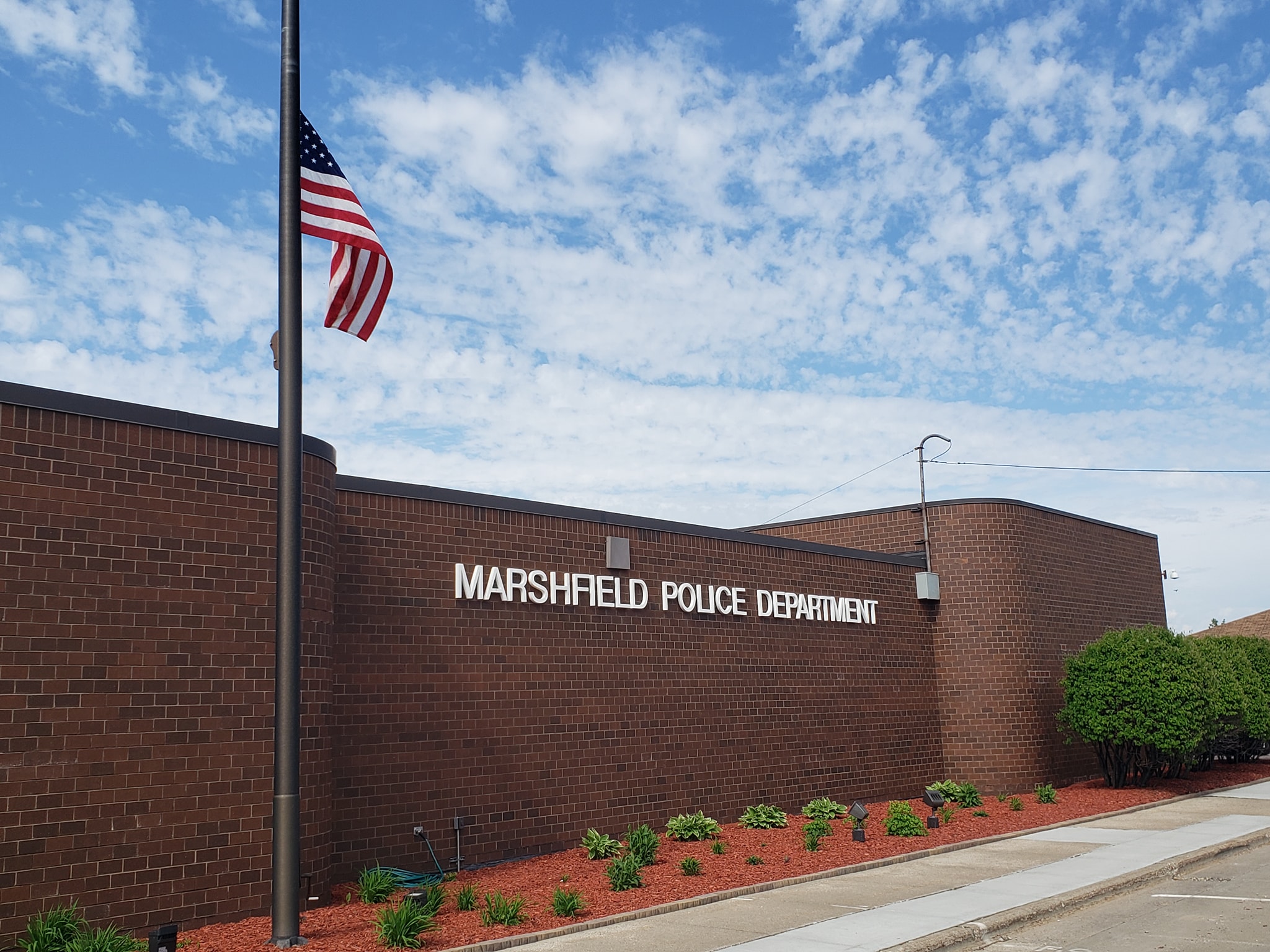
At least three Wisconsin communities — Brookfield, Whitewater and Marshfield — will be asking residents for more money during the spring election on April 1.
The city of Whitewater is asking residents to increase the property tax levy by $1.3 million to hire five police officers, a dispatcher and two firefighters.
The city of Brookfield is asking residents to increase the property tax levy by $6 million to keep nine firefighter positions and close a projected budget gap.
Meanwhile, the city of Marshfield is asking residents to increase the property tax levy by around $250,000 to hire two more firefighters.
Last year, 17 municipal and county referendums passed while 14 failed, according to Wisconsin Policy Forum data. In 2022, 29 passed while 15 failed.
A 2022 League of Wisconsin Municipalities report found voters tend to approve referendums for public safety items.
“While not all public safety referendums are approved, when voters are given the opportunity to increase property taxes on themselves to pay for public safety expenditures, they more often than not approve the increase,” Curt Witynski, the former deputy director of the League of Wisconsin Municipalities, wrote.
Brown said there could be other public safety referendums on the ballot this year. He said there will generally be more during years where there’s a midterm or presidential election.
Brookfield seeking help with future budgets
Robert Scott, the director of finance and administration for the city of Brookfield, said the city has had a few strong years of new construction recently.
“But as we’re largely built out, that trend is not going to continue,” Scott said.
“And so there’s a gap between what we’re able to tax under the law and what it costs to provide ongoing services,” Scott also said.
In 2021, the Brookfield Common Council accepted a federal grant to get nine more firefighters and paramedics. But that grant runs out early this year.
“So to retain those positions, we need to have additional money to continue to fund those jobs,” Scott said.
A web page with information about the referendum says the city is forecasting a budget deficit of $4 million next year. That shortfall is projected to grow to $7 million by 2029.
Brookfield Mayor Steve Ponto said if the referendum doesn’t pass, the city could be forced to cut staff and services. Scott said around 75 percent of the city budget is tied to employee salaries and benefits.
“The council would have to make some difficult decisions across the board in terms of where service levels would have to be adjusted,” Scott said about the referendum not passing.
Increased calls for service an issue in Whitewater
Whitewater police chief Dan Meyer said calls for service to the police department have increased 90 percent from 2010 to 2024. But in that time, he said there hasn’t been an increase in the staffing level for the police department.
“So it’s really led to a much more reactive style of policing, which for us is problematic in terms of crime prevention and really trying to solve problems before they become bigger issues,” Meyer said.
Meyer said he wants to hire more police officers, but it’s just not possible with the city’s current budget.
“We’ve requested additional staffing,” Meyer said. “There just has not been any ability to do that with the levy limits and the budget that the city has had, and it’s to a point now where, in my opinion, it’s more of a breaking point.”
Whitewater Fire Chief Kelly Freeman said the department’s call volume has also increased by 32 percent since 2022.
Whitewater is also dealing with an increase in immigrants coming to the community in recent years. Meyer said that’s led to longer traffic stops because of the language barrier that exists between officers and the new residents.
Meanwhile, Marshfield is looking for an annual property tax levy increase of $256,903 through a referendum. The referendum’s goal is to fill two firefighter positions that have been vacant since 2021.
TeStrake said a recent referendum to hire nine firefighters did not pass. So they’re now coming back to the voters to ask for more money to hire two firefighters.
“So when I look at this, this is a positive for Marshfield to get us back to where we were,” TeStrake said.
Wisconsin Public Radio, © Copyright 2025, Board of Regents of the University of Wisconsin System and Wisconsin Educational Communications Board.
